PHUKET: Thailand's Law Reform Commission will be asked to seek the repeal of the Computer Crimes Act and criminal defamation, laws being misused to silence the media and shackle unwanted critics in private business.
Two Phuketwan journalists being sued in a landmark military versus media court action by the Royal Thai Navy will be part of a delegation to the commission in Bangkok on May 22.
The Navy's unprecedented action formed the key point of discussion this week as journalists met at a seminar organised by Amnesty Thailand and the Media Inside Out group.
Reporter Chutima Sidasathian told the gathering that the action, brought by the Navy over a single paragraph from a Reuters special report republished among extracts by Phuketwan online in July last year, had shocked and surprised her and her colleague, editor Alan Morison.
Both face up to seven years in jail over the 41-word paragraph which was republished word for word in quotation marks from an article which formed part of Reuters' Rohingya coverage. The Reuters series - including the contentious paragraph - last month won a Pulitzer prize, regarded as journalism's most prestigious international award.
''We are not criminals,'' Khun Chutima said at the seminar. ''We are the victims. Rather than make a telephone call to seek a correction, the Royal Thai Navy has decided to use these laws as a weapon.''
Reuters and several Thai outlets that published the same paragraph have not been charged. The two Phuket journalists have concluded that the Royal Thai Navy wants to close down Phuketwan because of its extensive award-winning coverage of the treatment of boatpeople in Thailand over the past seven years.
Another speaker, The Nation newspaper's international editor, Supalak Ganjanakhundee, told the seminar that the Royal Thai Navy now risked damaging Thailand reputation internationally both over media freedom and the treatment of Rohingya refugees.
By remaining silent and secretive about the treatment of the thousands of Rohingya passing through Thailand from Burma, the country's rating in the important Trafficking in Persons listings was likely to slip from Tier 2 to Tier 3 later this year, with potentially damaging consequences to trade and Thailand's reputation.
''The Royal Thai Navy should not be suing the media but clarifying what is happening,'' he said. ''Suing the media also lowers Thailand's reputation in the important international category of media freedom.''
The human trafficking issue needed to be fixed and suing the media was no answer.
''Someone from the government, even though it is preoccupied right now, needs to let the Royal Thai Navy know that they are damaging Thailand's interests.''
It was unfortunate that with the political upheaval in Thailand, participants wanted media outlets to choose sides rather than provide a balanced coverage.
''Media freedom is a key indicator of whether a country is democratic,'' he said.
Khun Chutima said she thought that the Royal Thai Navy was a good organisation that had taken bad advice about the use of these repressive laws. A telephone call or a media conference would have been the appropriate way in a democracy to explain the Navy's view of what they claimed was happening.
Khun Chutima was later interviewed by several media outlets, including a broadcast over Chulalongkorn University and Parliament Radio.
Kulchada Chaipipat of the Southeast Asia Press Alliance told the seminar that Burma was reforming its media but there was still a high cost of entry that left government outlets in a dominating position, while journalist Dhewarit Maneechai related the Prachatai newspaper's experience with street protesters confronting journalists.
The Royal Thai Navy has yet to respond to an offer from Phuketwan to print an article without editing explain their views on defamation laws, the Rohingya in Thailand and media coverage.
Two Phuketwan journalists being sued in a landmark military versus media court action by the Royal Thai Navy will be part of a delegation to the commission in Bangkok on May 22.
The Navy's unprecedented action formed the key point of discussion this week as journalists met at a seminar organised by Amnesty Thailand and the Media Inside Out group.
Reporter Chutima Sidasathian told the gathering that the action, brought by the Navy over a single paragraph from a Reuters special report republished among extracts by Phuketwan online in July last year, had shocked and surprised her and her colleague, editor Alan Morison.
Both face up to seven years in jail over the 41-word paragraph which was republished word for word in quotation marks from an article which formed part of Reuters' Rohingya coverage. The Reuters series - including the contentious paragraph - last month won a Pulitzer prize, regarded as journalism's most prestigious international award.
''We are not criminals,'' Khun Chutima said at the seminar. ''We are the victims. Rather than make a telephone call to seek a correction, the Royal Thai Navy has decided to use these laws as a weapon.''
Reuters and several Thai outlets that published the same paragraph have not been charged. The two Phuket journalists have concluded that the Royal Thai Navy wants to close down Phuketwan because of its extensive award-winning coverage of the treatment of boatpeople in Thailand over the past seven years.
Another speaker, The Nation newspaper's international editor, Supalak Ganjanakhundee, told the seminar that the Royal Thai Navy now risked damaging Thailand reputation internationally both over media freedom and the treatment of Rohingya refugees.
By remaining silent and secretive about the treatment of the thousands of Rohingya passing through Thailand from Burma, the country's rating in the important Trafficking in Persons listings was likely to slip from Tier 2 to Tier 3 later this year, with potentially damaging consequences to trade and Thailand's reputation.
''The Royal Thai Navy should not be suing the media but clarifying what is happening,'' he said. ''Suing the media also lowers Thailand's reputation in the important international category of media freedom.''
The human trafficking issue needed to be fixed and suing the media was no answer.
''Someone from the government, even though it is preoccupied right now, needs to let the Royal Thai Navy know that they are damaging Thailand's interests.''
It was unfortunate that with the political upheaval in Thailand, participants wanted media outlets to choose sides rather than provide a balanced coverage.
''Media freedom is a key indicator of whether a country is democratic,'' he said.
Khun Chutima said she thought that the Royal Thai Navy was a good organisation that had taken bad advice about the use of these repressive laws. A telephone call or a media conference would have been the appropriate way in a democracy to explain the Navy's view of what they claimed was happening.
Khun Chutima was later interviewed by several media outlets, including a broadcast over Chulalongkorn University and Parliament Radio.
Kulchada Chaipipat of the Southeast Asia Press Alliance told the seminar that Burma was reforming its media but there was still a high cost of entry that left government outlets in a dominating position, while journalist Dhewarit Maneechai related the Prachatai newspaper's experience with street protesters confronting journalists.
The Royal Thai Navy has yet to respond to an offer from Phuketwan to print an article without editing explain their views on defamation laws, the Rohingya in Thailand and media coverage.

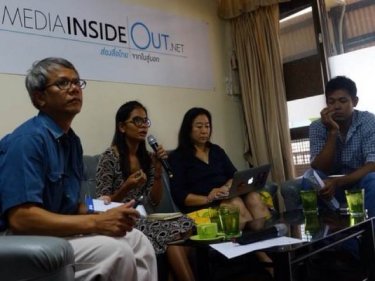
.jpg)
.jpg)
.jpg)
.jpg)
.jpg)

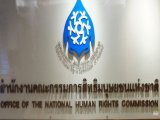
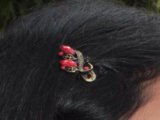
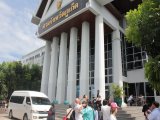

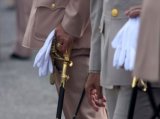
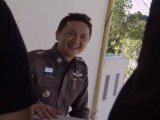









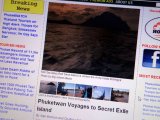






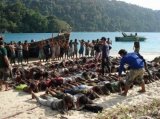


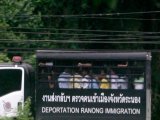


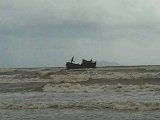

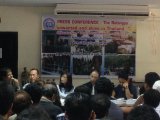

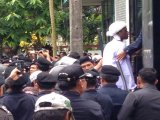
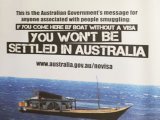
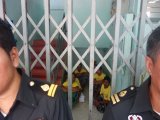
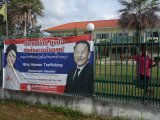
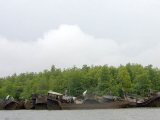



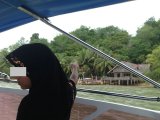

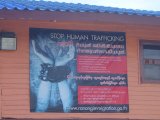
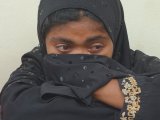



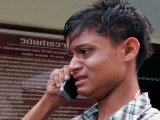


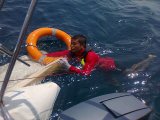

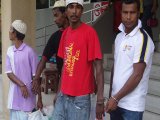

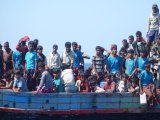


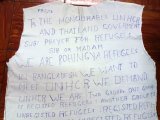
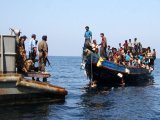

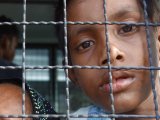








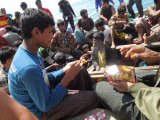



"those foreigners should not mentor us how to live, and their arrogance in criticizing us is very impolite and unacceptable . if they don't like something about us, they should go back to their country. they are guests here and should not make their own laws. we don't need such foreigners here" - how often you heard this , or msg like that was implied within a context , huh...?
Posted by Sue on May 8, 2014 14:32
Editor Comment:
Media freedom and freedom of expression in Thailand has little to do with whether or not foreigners are involved, Sue. The laws apply equally whether your name is Chutima Sidasathian or Alan Morison.